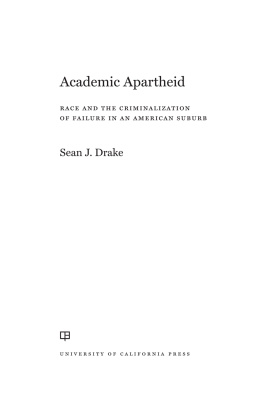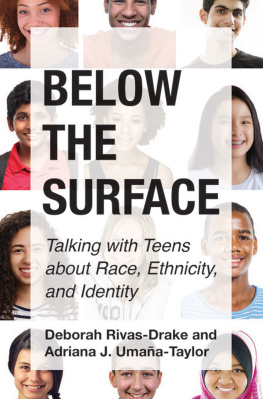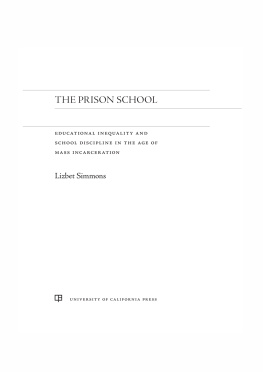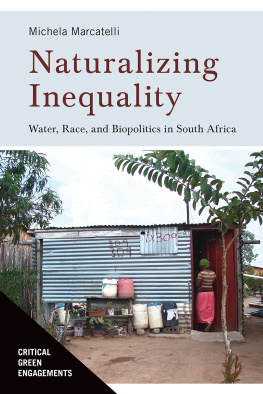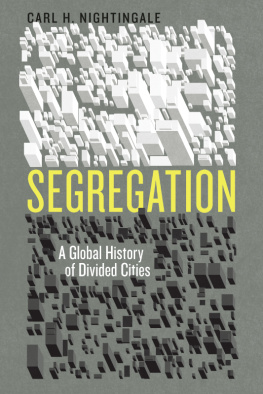
The publisher and the University of California Press Foundation gratefully acknowledge the generous support of the Fletcher Jones Foundation Imprint in Humanities.
Academic Apartheid
RACE AND THE CRIMINALIZATION OF FAILURE IN AN AMERICAN SUBURB
Sean J. Drake

UNIVERSITY OF CALIFORNIA PRESS
University of California Press
Oakland, California
2022 by Sean Drake
Cover art by Brian Stauffer.
Interior photographs are by the author.
Library of Congress Cataloging-in-Publication Data
Names: Drake, Sean J., author.
Title: Academic apartheid : race and the criminalization of failure in an American suburb / Sean J. Drake.
Description: Oakland, California : University of California Press, [2022] | Includes bibliographical references and index.
Identifiers: LCCN 2021046115 (print) | LCCN 2021046116 (ebook) | ISBN 9780520381353 (cloth) | ISBN 9780520381377 (paperback) | ISBN 9780520381384 (epub)
Subjects: LCSH: Segregation in educationCalifornia, Southern. | Educational equalizationCalifornia, Southern. | Racism in schoolsCalifornia, Southern. | MinoritiesEducationCalifornia, Southern.
Classification: LCC LC212.522.C2 D73 2022 (print) | LCC LC212.522.C2 (ebook) | DDC 379.2/63097949dc23/eng/20211022
LC record available at https://lccn.loc.gov/2021046115
LC ebook record available at https://lccn.loc.gov/2021046116
31 30 29 28 27 26 25 24 23 22
10 9 8 7 6 5 4 3 2 1
Contents
Acknowledgments
First and foremost, thank you to the students, parents, teachers, faculty, and staff who welcomed me onto their campuses and into their lives. They were gracious hosts, and this book would not have been possible without their understanding, curiosity, and cooperation. I am especially thankful for the teachers who let me observe in their classrooms, and for the students who accepted me and urged me to tell their stories.
This project began as my doctoral dissertation in the Department of Sociology at the University of California, Irvine. The faculty and my fellow graduate students at UCI provided a wonderful network of intellectual and social support that sustained me throughout my graduate studies. Gilberto Conchas took me under his wing as soon as I arrived on campus, helping me navigate the hopes and fears that are endemic to the early stages of graduate school, and getting me involved in research projects right away. His first book, The Color of Success, changed the way I thought about the unequal distribution of resources and opportunities in schools. Gil provided critical feedback on an intermediate draft of the manuscript, and I am so appreciative of his guidance and friendship.
A special thank you to Jennifer Lee, who served as my primary advisor and chaired my dissertation committee at UCI. Jennifers strategic and pragmatic approach pushed me to become a more effective writer, and to formulate research questions that cut to the heart of the issues that I examine in this book. Our regular meetings throughout the data collection and analytical phases of the project were always fruitful and inspiring. She helped me make sense of all that I was seeing, hearing, and experiencing in the field. I am grateful for her support over the years in all aspects of my career.
Thank you to David Snow and Jacob Avery, who co-taught an ethnographic research methods seminar that served as the springboard for the research that appears in this book. I gained access to my field sites while I was a student in that course, and their insightful feedback on the early stages of the project helped me tremendously. Daves detailed comments on my first sets of field notes set the tone for the rest of the project, and Jacob always knew just what to say to keep me focused when the data seemed overwhelming.
During my time at UC Irvine, numerous faculty members served as informal advisors or sounding boards at various stages of this project. Among this constellation of supporters, I am particularly grateful to Lilith Mahmud, Ann Hironaka, Belinda Robnett, Cynthia Feliciano, Nina Bandelj, Geoff Ward, Frances Leslie, Evan Schofer, Doug Haynes, Thomas Parham, and Kaaryn Gustafson for their interest in my development as a sociologist and the trajectory of this project. I also received constant support from the Graduate Division at UCI, including a series of fellowships and grants that carried me through the bulk of my fieldwork.
I benefited from a collegial and supportive group of graduate students at UC Irvine across the social sciences and humanities, including Ali Meghdadi, Dana Moss, Raul Perez, Pablo Torres, Sharmaine Jackson, Burrell Vann, Miles Davison, Martin Jacinto, Alma Garza, Hector Martinez, Sheefteh Khalili, Matt Rafalow, Brendon Butler, Briana Hinga, Nayssan Safavian, Alex Lin, E.J. Johnson, Kreshnik Begolli, Cathery Yeh, and Phil Walsh. These were the fellow doctoral students with whom I checked in, workshopped ideas, sharpened arguments, and hung out with casually from time to time. I am indebted to them all.
Thank you to the Ford Foundation for supporting the later stages of data collection and analysis through a Dissertation Fellowship, and for the opportunity to present and receive feedback on an early, skeletal version of this work at the 2016 Annual Conference of Ford Fellows in Washington, D.C. Various sections and chapters of the book were also significantly strengthened by participants questions and comments at the 2014 Yale Urban Ethnography Project Conference, the American Sociological Associations Annual Meeting, the Race Research Workshop in the Department of Sociology at UC Irvine, the colloquium series in the Department of Sociology at UC Berkeley, the colloquium series in the Department of Social Science and Humanities at NYU Steinhardt, and the Ethnography Workshop in the Department of Sociology at NYU. Thank you to all who attended those sessions and gave me feedback.
A special thank you to Elijah Anderson, whose books got me excited about ethnographic methods, and whose generous mentorship has been instrumental to my progression as a sociologist. Eli invited me to present at his Urban Ethnography Project Conference at Yale University in 2014 despite the fact that I was only in my second year as a sociology doctoral student and I had only about six weeks of observational data to work with. (Thank you, Jacob, for helping me prepare!) That gathering introduced me to a broad network of ethnographers and kindred spirits, and it was a turning point in the development of my research agenda. I received encouraging comments and critiques from Colin Jerolmack, Waverly Duck, Forrest Stuart, Jooyoung Lee, Jeffrey Lane, Leslie Paik, Alice Goffman, Fred Wherry, and Jeff Guhin. Their interest in my work boosted my confidence, and I left New Haven that weekend with a renewed sense of purpose and direction.
After completing my dissertation, I spent four years at New York University, first as a Provosts Postdoctoral Fellow and then as a Visiting Assistant Professor. NYU was an ideal place for me to transition from a doctoral candidate to a professor, and those interstitial years gave me the time and space to reacquaint myself with my data and write this book from beginning to end. I am grateful for the unwavering support and guidance of many terrific colleagues at NYU, but I would particularly like to thank Kwame Coleman, Matthew Morrison, Cybele Raver, Farooq Niazi, Jim Fraser, Colin Jerolmack, Iddo Tavory, Pat Sharkey, Lisa Stulberg, Ravi Shroff, Stella Flores, Ann Morning, Linsey Evans, Mike Funk, Gary Anderson, Pamela Morris, Noel Anderson, Eric Klinenberg, Lynne Haney, David Kirkland, Mike Amezcua, Mireya Loza, Sebastian Cherng, Charlton McIlwain, Liang Zhang, Ann Marcus, Kayla Desportes, Colleen Larson, and Letizia La Rosa. Thank you as well to the NYU undergraduate and graduate students for commenting so thoughtfully on the portions of this book that I presented in class.
Next page
